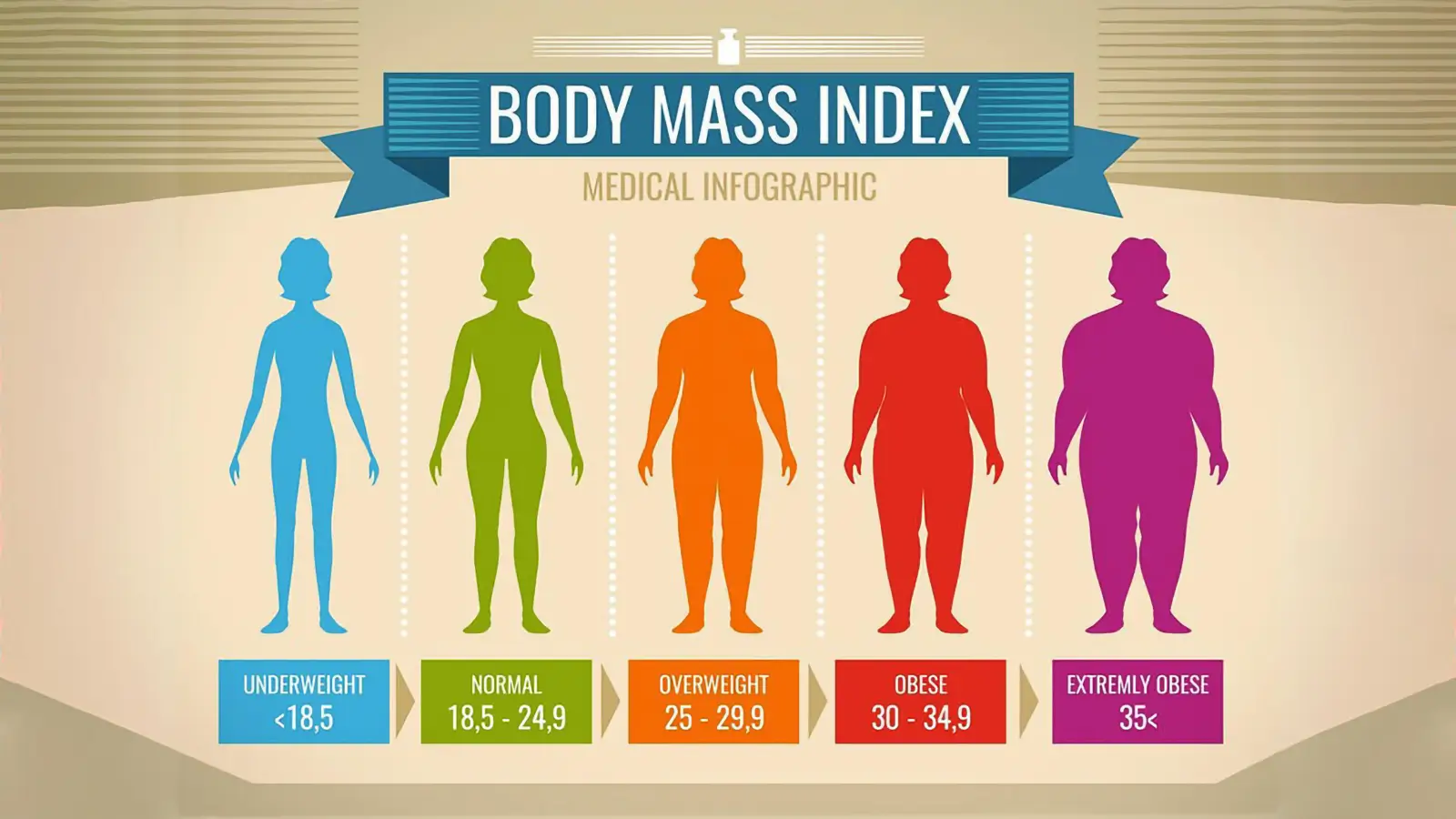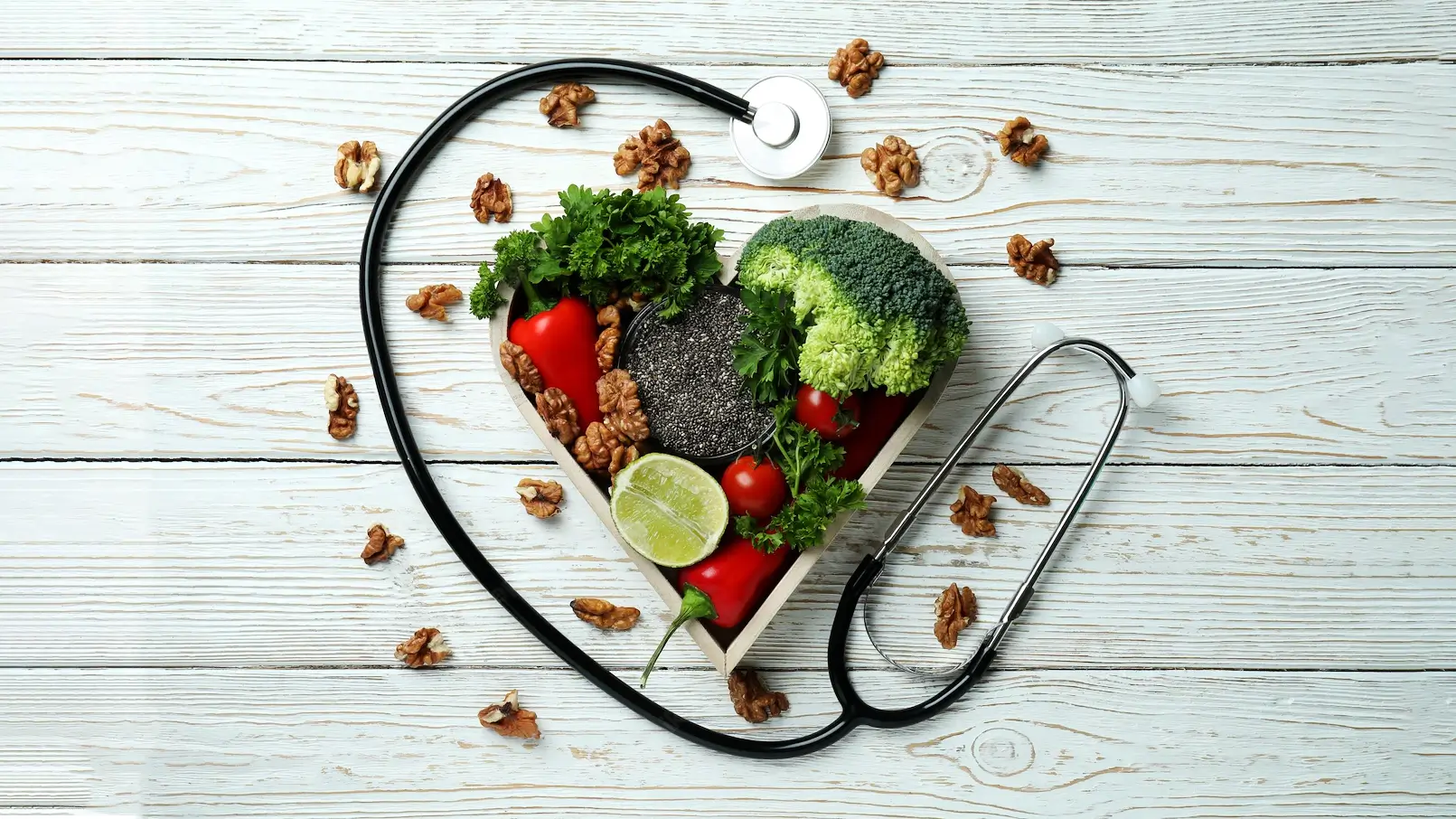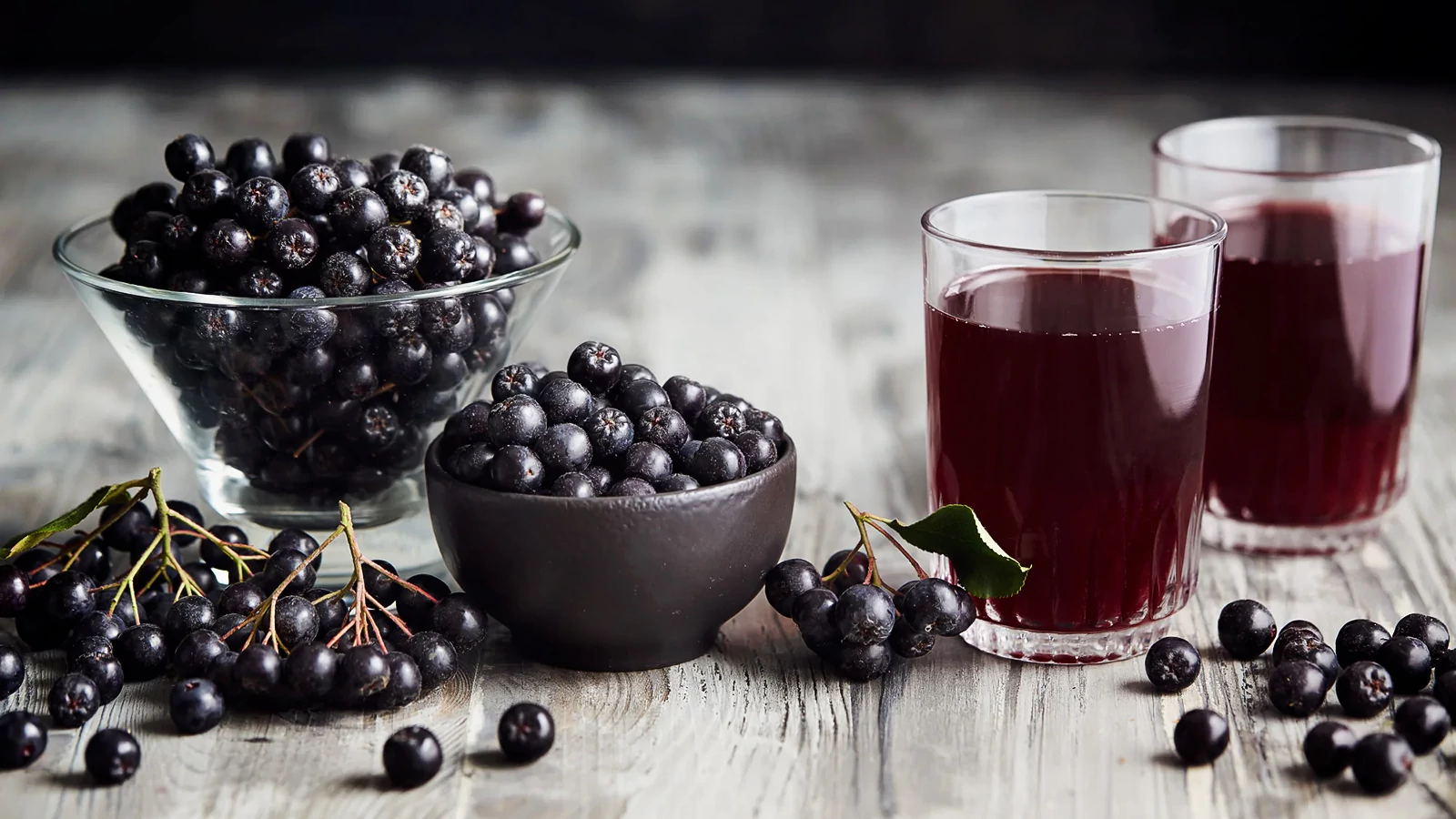Judías Verdes: Nutrición y Beneficios Para la Salud
Los frijoles verdes son bajos en calorías y ricos en compuestos naturales que pueden ayudar a controlar su azúcar en la sangre, reducir el colesterol y combatir los radicales libres.
Milos Pokimica
Escrito por: Milos Pokimica
Revisado Médicamente Por: Dr. Xiùying Wáng, M.D.
Actualizado el 25 de septiembre de 2023Principales Conclusiones:
- Las judías verdes se cosechan antes de que las vainas se sequen y se abran.
- Algunos estudios han demostrado que las judías verdes pueden reducir el riesgo de cáncer de mama, colon y próstata porque tienen grandes cantidades de clorofila, almidón resistente, fibra alimentaria soluble e insoluble y compuestos fenólicos (Aquino-Bolaños et al., 2021).
- Otro beneficio de las judías verdes es que pueden ayudar a controlar la diabetes al reducir la producción de insulina y los niveles de azúcar en sangre.
- Las judías verdes también pueden ayudarle a mejorar su salud cardiovascular reduciendo sus niveles de colesterol y triglicéridos.
- Una taza de judías verdes sólo tiene 31 calorías, lo que supone menos de 2% de tu ingesta calórica diaria. De estas calorías, 77% proceden de los hidratos de carbono, 19% de las proteínas y 5% de las grasas.
- Las judías verdes pueden ser una buena opción para hacer dieta, ya que pueden ayudarle a sentirse lleno y satisfecho con menos calorías.
- Tienen una buena cantidad de vitamina K, una vitamina liposoluble que ayuda a la coagulación de la sangre y a la salud ósea. También tienen algo de vitamina C. Sin embargo, la vitamina C es sensible al calor. Tras la cocción, la cantidad de vitamina C restante será insignificante.
- Las judías verdes contienen unos 4 gramos de fibra por taza, lo que equivale aproximadamente a 16% de la ingesta diaria recomendada.
- El índice glucémico (IG) de las judías verdes es de 32, lo que se considera bajo según los estándares de la Asociación Americana de Diabetes.
- La cocción aumentó el contenido de carotenoides (β-caroteno, luteína y zeaxantina) en todos los tipos de judías verdes.
- Las judías verdes suelen ser bajas en FODMAP.
- Las judías verdes tienen menos fibra y carbohidratos, lo que significa que es menos probable que provoquen fermentación y gases en el intestino grueso.
- Evite comer cualquier legumbre cruda, incluso si se trata de variedades no maduras como las judías verdes.
- Puede reducir o eliminar por completo todos los antinutrientes remojando o germinando primero las judías y cocinándolas después antes de comerlas. Estos métodos pueden desactivar o eliminar la mayoría de los fitatos, todas las lectinas y la mayoría de los inhibidores enzimáticos de las judías y hacerlas más digeribles y nutritivas.
Judías Verdes.
Las legumbres son plantas asombrosas que pueden alimentar a millones de personas en todo el mundo. No sólo son deliciosas, sino también nutritivas, ya que están repletas de proteínas, fibra, vitaminas y minerales. Las legumbres también pueden ayudar a equilibrar la carencia de algunos cereales porque tienen aminoácidos esenciales de los que carecen los cereales. Por eso muchas personas de los países en desarrollo recurren a las legumbres como principal fuente de proteínas. proteína.
Una de las legumbres más importantes del mundo es la judía. Hay muchos tipos de judías, pero todas pertenecen al género Phaseolus, que cuenta con hasta 117 especies. La mayoría de estas especies son originarias de la región mesoamericana, que es la zona comprendida entre México y América Central. Algunas de las judías más populares son P. vulgaris y P. coccineus L., que se domesticaron por primera vez en el oeste de México. Estas judías se encuentran entre las cinco primeras especies cultivadas y consumidas en México, y también entre las tres primeras a nivel mundial.
Pero las judías no sólo son buenas por sus semillas. También tienen vainas comestibles que se conocen como judías verdes.
Las judías verdes se cosechan antes de que las vainas se sequen y se abran.
Pueden tener distintos colores, desde amarillo y verde hasta rojo y morado, según la variedad. Las judías verdes son muy jugosas porque contienen mucha agua. También tienen minerales, vitamina A y algunas proteínas y fibra. Las judías verdes se clasifican como verduras y forman parte de la dieta diaria de muchas personas. También son ricas en antioxidantes, que son sustancias que pueden proteger sus células de los daños. Algunos de los antioxidantes de las judías verdes son ácidos fenólicos, flavonoides, lignanos y otros compuestos con nombres difíciles de pronunciar.
Beneficios Para La Salud.
Estos antioxidantes pueden hacer cosas increíbles por su salud. Por ejemplo, pueden ayudar a prevenir o ralentizar el crecimiento de cáncer células de tu cuerpo. También pueden combatir bacterias, virus, espasmos e inflamaciones.
Algunos estudios han demostrado que las judías verdes pueden reducir el riesgo de cáncer de mama, colon y próstata porque tienen grandes cantidades de clorofila, almidón resistente, fibra alimentaria soluble e insoluble y compuestos fenólicos (Aquino-Bolaños et al., 2021).
La clorofila es un pigmento que les da su color verde y les ayuda a producir oxígeno. La clorofila puede unirse a los carcinógenos, que son sustancias que pueden causar cáncer, e impedir que lleguen a sus células. Se utiliza en desintoxicación como uno de los principales suplementos. También contienen flavonoides, que son un tipo de compuestos fenólicos con propiedades antiinflamatorias y anticancerígenas. Los flavonoides pueden modular la actividad de enzimas y hormonas que intervienen en el desarrollo y la progresión del cáncer.
Otro beneficio de las judías verdes es que pueden ayudar a controlar la diabetes al reducir la producción de insulina y los niveles de azúcar en sangre.
Esto se debe a que tienen mucha fibra que ralentiza la digestión de los hidratos de carbono. Algunas personas con diabetes pueden incluso reducir su necesidad de insulina hasta 40% comiendo judías verdes con regularidad.
Las judías verdes pueden ayudarle a prevenir o controlar la diabetes regulando sus niveles de azúcar en sangre. Contienen almidón resistente y fibra soluble e insoluble, que pueden ralentizar la digestión y absorción de los hidratos de carbono y reducir los picos de insulina y glucosa en el torrente sanguíneo. También contienen compuestos fenólicos, que son antioxidantes capaces de proteger las células del estrés oxidativo y la inflamación provocados por la hiperglucemia.
Las judías verdes también pueden ayudarle a mejorar su salud cardiovascular reduciendo sus niveles de colesterol y triglicéridos.
Contienen carotenoides, pigmentos que les confieren sus tonalidades amarillas o anaranjadas y las protegen de los daños del sol. Los carotenoides pueden actuar como antioxidantes y agentes antiinflamatorios que pueden prevenir la oxidación y la acumulación de colesterol LDL. También contienen poliaminas, que son moléculas que les ayudan a crecer y reparar sus células. Las poliaminas pueden regular la síntesis y degradación de las grasas en el hígado y evitar la elevación de los triglicéridos, que son grasas que pueden aumentar el riesgo de sufrir enfermedades cardiacas.
Perfil Nutricional de las Judías Verdes.
| Nutrientes (ración de 100 gramos) | Cantidad | Valor Diario |
| Energía | 31 kcal | 1.5% |
| La proteína | 1.83 g | 3% |
| Lípidos totales (grasa) | 0.22 g | 1% |
| Carbohidratos, por diferencia | 6.97 g | 5.4% |
| Fibra dietética total | 2.7 g | 8% |
| Azúcares, total incluidos los NLEA | 3.26 g | – |
| Minerales | ||
| Calcio, Ca | 37 mg | 3% |
| Hierro, Fe | 1,03 mg | 6% |
| Magnesio, Mg | 25 mg | 6% |
| Fósforo, P | 38 mg | 3% |
| Potasio, K | 211 mg | 4% |
| Sodio, Na | 6 mg | 0.4% |
| Zinc, Zn | 0,24 mg | 2% |
| Cobre, Cu | 0,069 mg | 6% |
| Manganeso, Mn | 0,216 mg | 9% |
| Selenio, Se | 0,6 µg | – |
| Vitaminas | ||
| La Vitamina Cácido ascórbico total | 12,2 mg | 14% |
| Tiamina | 0,082 mg | 7% |
| Riboflavina | 0,104 mg | 8% |
| Niacina | 0,734 mg | 5% |
| Ácido pantoténico | 0,225 mg | 5% |
| Vitamina B-6 | 0,141 mg | 8% |
| Folato, total | 33 µg | 8% |
| Colina, total | 15,3 mg | |
| Vitamina A, RAE | 35 µg | 4% |
| Caroteno, beta | 379 µg | 3% |
| Vitamina A, UI | 690 UI | |
| Vitamina E (alfa-tocoferol) | 0,41 mg | 3% |
| Vitamina K (filoquinona) | 43 µg | 36% |
| Antioxidantes | ||
| Luteína + zeaxantina | 640 µg | |
| Kaempferol | 0,5 mg | |
| Miricetina | 0.1 mg | |
| Quercetina | 2,7 mg |
Las judías verdes son una buena fuente de carbohidratos complejos. Una taza de judías verdes tiene cuatro gramos de almidón, que te proporciona energía rápida. También tiene casi tres gramos de fibra, que te ayuda a controlar los niveles de azúcar en sangre, te mantiene saciado durante más tiempo y favorece tu salud intestinal.
Las judías verdes no contienen grasa por naturaleza, lo que las convierte en una excelente opción para controlar el peso. Una taza de judías verdes sólo tiene 0,2 gramos de grasa, lo que es insignificante.
Una taza de judías verdes sólo tiene 31 calorías, lo que supone menos de 2% de tu ingesta calórica diaria. De estas calorías, 77% proceden de los hidratos de carbono, 19% de las proteínas y 5% de las grasas.
Sin embargo, tenga cuidado con la forma de cocinar y servir las judías verdes, ya que algunos métodos pueden añadirles grasa extra. Por ejemplo, si las cubres con mantequilla o queso, o las preparas en una cazuela con nata y cebolla frita, puedes aumentar considerablemente el contenido de grasa y calorías.

Las judías verdes pueden ser una buena opción para hacer dieta, ya que pueden ayudarle a sentirse lleno y satisfecho con menos calorías. También pueden aportarte nutrientes esenciales que tu cuerpo necesita para funcionar bien. Sin embargo, debes tener cuidado con la forma en que preparas y consumes las judías verdes, ya que algunos métodos pueden añadirles más grasa, sodio o azúcar.
Por ejemplo, las judías verdes enlatadas pueden contener mucho sodio, por lo que conviene aclararlas y escurrirlas antes de comerlas.
También debe evitar añadir mantequilla, queso, nata o cebolla frita a las judías verdes, ya que pueden aumentar el contenido calórico y graso. En su lugar, puede cocer al vapor, hervir o saltear las judías verdes con un poco de ajo, zumo de limón o hierbas para obtener una guarnición sana y sabrosa.
Las judías verdes contienen algunas proteínas. Una taza de judías verdes contiene casi dos gramos de proteínas, lo que no es mucho, pero contribuye a cubrir las necesidades diarias.
Tienen una buena cantidad de vitamina K, una vitamina liposoluble que ayuda a la coagulación de la sangre y a la salud ósea. También tienen algo de vitamina C. Sin embargo, la vitamina C es sensible al calor. Tras la cocción, la cantidad de vitamina C restante será insignificante.
Resumen.Las judías verdes son una buena fuente de vitamina K y carbohidratos complejos, contienen algunas proteínas y son muy bajas en grasas y calorías.Diabetes.
Si tiene diabetes, sabe lo importante que es vigilar lo que come. Debe mantener controlados los niveles de azúcar en sangre y evitar los alimentos que pueden dispararlos. De hecho, algunas verduras pueden ayudarle a controlar mejor la diabetes. Una de ellas son las judías verdes.
Las judías verdes son una de las mejores verduras para la diabetes porque tienen muchos beneficios para la salud.
Tienen pocas calorías, grasas y carbohidratos, pero mucha fibra, antioxidantes, vitaminas y minerales. Pueden ayudarle a perder peso, prevenir enfermedades cardiacas, combatir el cáncer y reducir los niveles de azúcar en sangre.
En primer lugar, las judías verdes son bajas en carbohidratos, lo que significa que no elevarán tanto tus niveles de azúcar en sangre como otras verduras con almidón como las patatas o el maíz. Las judías verdes sólo tienen unos 7 gramos de carbohidratos por taza, frente a los 37 gramos de las patatas y los 29 gramos del maíz. Es una gran diferencia.
En segundo lugar, las judías verdes tienen un alto contenido en fibra, que es excelente para la digestión y el control del azúcar en sangre. La fibra ralentiza la absorción del azúcar de los alimentos en el torrente sanguíneo, lo que ayuda a prevenir los picos y las caídas. La fibra también hace que te sientas saciado durante más tiempo, lo que te ayuda a comer menos y a perder peso.
Las judías verdes contienen unos 4 gramos de fibra por taza, lo que equivale aproximadamente a 16% de la ingesta diaria recomendada.
En tercer lugar, las judías verdes son ricas en antioxidantes, sustancias naturales que protegen las células del daño causado por los radicales libres. Los radicales libres son moléculas inestables que pueden causar inflamación, envejecimiento y enfermedades como el cáncer y la diabetes. Los antioxidantes pueden neutralizar los radicales libres y reducir sus efectos nocivos. Las judías verdes tienen muchos tipos de antioxidantes, como ácidos fenólicos, flavonoides, lignanos y otros compuestos con nombres difíciles de pronunciar.
Estos antioxidantes pueden hacer cosas increíbles por su salud. Por ejemplo, pueden ayudar a prevenir o ralentizar el crecimiento de células cancerosas en el organismo. También pueden combatir bacterias, virus, espasmos e inflamaciones. Algunos estudios han demostrado que las judías verdes pueden reducir el riesgo de cáncer de mama, colon y próstata porque tienen grandes cantidades de clorofila, almidón resistente, fibra dietética soluble e insoluble y compuestos fenólicos.
Estas judías también tienen un índice glucémico bajo. El índice glucémico (IG) de las judías verdes es de 32, lo que se considera bajo según los estándares de la Asociación Americana de Diabetes. A título orientativo, los alimentos de bajo índice glucémico son los que tienen un IG igual o inferior a 55. La carga glucémica (CG) de las judías verdes también es baja, igual a 2,1. Los alimentos con IG y CG bajos pueden ayudar a las personas con diabetes a controlar sus niveles de azúcar en sangre y evitar los picos y las bajadas.
En este estudio (Ezzat et al., 2022), los científicos estudiaron cómo las judías verdes pueden mejorar la salud de las ratas diabéticas. También estudiaron cómo las judías verdes pueden actuar junto con las células madre para regenerar el páncreas, que es el órgano que produce la insulina. Inyectaron a algunas ratas diabéticas células madre, que son células que pueden convertirse en distintos tipos de células del organismo.
Extrajeron los compuestos naturales de las judías verdes utilizando etanol. Descubrieron que los compuestos de las judías verdes aumentaban 4,4 veces el nivel de insulina en sangre cuando se combinaban con células madre. Esto significa que los compuestos de las judías verdes ayudaron a las células madre a instalarse en el páncreas y convertirse en células productoras de insulina.
Los compuestos de la judía verde también redujeron los niveles de malondialdehído, óxido nítrico, colesterol y triglicéridos en sangre, que son indicadores de estrés oxidativo y riesgo cardiovascular. Los compuestos de la judía verde también aumentan el nivel de HDL, que es el colesterol bueno que protege las arterias.
Probaron sus efectos sobre dos enzimas que intervienen en la digestión: la lipasa pancreática y la α-amilasa. La lipasa pancreática descompone las grasas, mientras que la α-amilasa descompone los almidones.
Descubrieron que los compuestos de las judías verdes inhibían ambas enzimas, pero más fuertemente la lipasa pancreática. Esto significa que las judías verdes podrían ayudar a perder peso reduciendo la absorción de grasas y carbohidratos.
Método de Cocción.
La forma de cultivar y cocinar las judías verdes puede afectar a su valor nutritivo y su capacidad antioxidante. En este estudio (Lima et al., 2017), los científicos compararon judías verdes ecológicas y convencionales y cómo cambiaban tras diferentes métodos de cocción.
Descubrieron que las judías verdes ecológicas y convencionales presentaban algunas diferencias en su estado crudo inicial. Las judías verdes convencionales tenían más clorofila y fenoles totales que las ecológicas. Las judías verdes ecológicas tienen más flavonoides que las convencionales, que son un tipo de polifenoles con propiedades antiinflamatorias y anticancerígenas. Las poliaminas y los carotenoides eran similares en ambos tipos de judías verdes.
Las judías verdes ecológicas también tenían mayor capacidad antioxidante que las convencionales, lo que significa que podían eliminar más radicales libres.
El estudio también analizó cómo los diferentes métodos de cocción cambiaban la niveles de estos nutrientes y antioxidantes. Utilizaron tres métodos: hervido, calentamiento por microondas y cocción a presión.
La cocción aumentó el contenido de carotenoides (β-caroteno, luteína y zeaxantina) en todos los tipos de judías verdes.
El calentamiento por microondas potenció un poco más algunos compuestos polares, que son moléculas que se disuelven en agua, mientras que la cocción a presión potenció los carotenoides. Estos resultados sugieren que los distintos métodos de cocción pueden afectar al color y la calidad de las judías verdes.
Pero, ¿qué hay de la capacidad antioxidante de las judías verdes?
Descubrieron que todos los extractos de judías verdes reducían los radicales libres, independientemente del método de cultivo o de cocción. Sin embargo, la cocción por microondas tanto en judías verdes ecológicas como convencionales mostró la mayor reducción, lo que indica una mayor disponibilidad de antioxidantes con este tipo de tratamiento térmico.
Alimentos Bajos en FODMAP.
La baja FODMAP dieta forma parte de la terapia para los SII y SIBO. Si sigues una dieta baja en FODMAP, puede que te preguntes si también son buenas para tu intestino. Después de todo, algunas verduras pueden ser delicadas en lo que respecta a los FODMAP, y no querrás desencadenar ningún síntoma desagradable.
Entonces, ¿son las judías verdes bajas en FODMAP? La respuesta es sí, siempre que se respete la ración recomendada. Puede disfrutar de hasta 100 gramos de judías verdes sin preocuparse por los FODMAP. Eso es aproximadamente un puñado o una taza pequeña de estas deliciosas judías.
Las judías verdes contienen pequeñas cantidades de fructanos y GOS, que son dos tipos de FODMAP que pueden causar hinchazón, gases y dolor en algunas personas. Si comes más de 100 gramos de judías verdes, podrías acabar con más FODMAPs de los que tu cuerpo puede manejar.
Aunque las judías verdes suelen ser bajas en FODMAP, hay algunas cosas que debes tener en cuenta al comerlas.
- Evite comer demasiadas judías verdes a la vez. Como ya hemos dicho, las judías verdes contienen algunos FODMAP que pueden acumularse si comes más de 100 gramos. Para evitarlo, mide el tamaño de tu ración antes de comer y no vuelvas a repetir.
- Evite comer judías verdes que hayan sido cocinadas con ingredientes ricos en FODMAP. Algunos de ellos son el ajo, la cebolla, la nata, el queso, la miel o los frutos secos. Estos ingredientes pueden aumentar el contenido de FODMAP de las judías verdes y provocar molestias digestivas. Si come fuera o en casa de otra persona, pregunte cómo se han preparado las judías verdes y evítelas si contienen algún ingrediente con alto contenido en FODMAP.
- Evite comer judías verdes enlatadas o congeladas que tengan azúcares añadidos o conservantes. Estos aditivos también pueden aumentar el contenido de FODMAP de las judías verdes y hacerlas menos saludables. Comprueba siempre la etiqueta antes de comprar judías verdes enlatadas o congeladas y busca las que solo tengan judías verdes y agua como ingredientes.
Gases e Hinchazón.
Las judías verdes son un tipo de legumbre, pero se diferencian de las demás en la producción de gas. Las judías verdes no están completamente maduras y tendrán menos almidón resistente que las judías completamente maduras.
Almidón resistente es un tipo de almidón que escapa a la digestión en el intestino delgado y llega al colon, donde puede alimentar a las bacterias beneficiosas. El almidón resistente puede tener muchos beneficios para la salud, como reducir los niveles de azúcar y colesterol en sangre, mejorar la sensibilidad a la insulina, aumentar la saciedad y controlar el peso. También produce gases e hinchazón como efecto secundario.
Las judías verdes tienen menos fibra y carbohidratos, lo que significa que es menos probable que provoquen fermentación y gases en el intestino grueso.
Sin embargo, esto no significa que las judías verdes estén completamente libres de gases.
Las judías verdes aún contienen algo de fibra y lectinas, que son proteínas que pueden unirse a los hidratos de carbono y dificultar la digestión. Por lo tanto, algunas personas pueden seguir experimentando gases e hinchazón después de comer judías verdes, especialmente si comen demasiado o tienen un intestino sensible.
Para reducir los gases y la hinchazón provocados por las judías verdes, puedes probar algunos de estos consejos:
- Remoje las judías verdes en agua durante 4-6 horas antes de cocinarlas. Esto iniciará un proceso de germinación que eliminará cierta cantidad de antinutrientes como las lectinas y las hará más fáciles de digerir.
- Cueza bien las judías verdes hasta que estén blandas y tiernas. Esto también puede ayudar a descomponer algunas de las lectinas y fibra.
- Mastica bien las judías verdes antes de tragarlas. Esto puede ayudar a que la saliva y las enzimas digestivas inicien el proceso de digestión y reduzcan la carga de trabajo del intestino.
- Evite comer judías verdes con alimentos que puedan aumentar la producción de gases, como el ajo, la cebolla, el brécol, la coliflor, la col o los productos lácteos.
Si es propenso a los gases y la hinchazón, puede limitar el consumo de judías verdes o seguir los consejos anteriores para evitar molestias.
Mucha gente prefiere la textura crujiente de las judías frescas, sobre todo en ensaladas, a las blandas y cocidas de las de lata. Por no hablar de que las judías verdes en conserva a menudo pierden su vibrante color verde y tienen un aspecto apagado y grisáceo. Sin embargo, las judías verdes siguen siendo judías.
Evite comer cualquier legumbre cruda, incluso si se trata de variedades no maduras como las judías verdes.
¿Cuáles Son Los Efectos Secundarios De Las Judías Verdes?
Las alubias contienen algunos compuestos que pueden afectar a la digestión y al metabolismo, o causar inflamación. Estos compuestos se denominan inhibidores enzimáticos, lectinas, fitatos y oligosacáridos. Pueden tener efectos tanto buenos como malos en tu organismo, dependiendo de la cantidad que comas y de cómo los prepares. Te lo explico.
Los inhibidores enzimáticos son sustancias que pueden bloquear o ralentizar la actividad de las enzimas, que son proteínas que le ayudan a digerir y utilizar los alimentos que ingiere.
Estos inhibidores enzimáticos pueden ayudarle a reducir los niveles de azúcar e insulina en sangre al retrasar la descomposición y absorción de los carbohidratos. También pueden ayudarle a sentirse más saciado y a comer menos al aumentar la sensación de saciedad y plenitud. También pueden ayudarle a prevenir o controlar la obesidad, la diabetes y el síndrome metabólico mejorando la sensibilidad a la insulina y la tolerancia a la glucosa.
Por otra parte, también pueden interferir en la digestión y absorción de proteínas y otros nutrientes al bloquear las enzimas que los descomponen.
Las lectinas son proteínas que pueden adherirse a los hidratos de carbono de la superficie de las células y afectar a su funcionamiento. Algunas alubias contienen lectinas que pueden adherirse a las células de los vasos sanguíneos, el intestino o el sistema inmunitario.
Estas lectinas pueden ser buenas o malas para usted. Por un lado, pueden ayudar a reducir la tensión arterial y los niveles de colesterol al unirse a los receptores de las paredes de los vasos sanguíneos y mejorar su elasticidad y permeabilidad. También pueden ayudar a combatir infecciones al unirse a patógenos (bacterias o virus) e impedir que se adhieran a las células. También pueden ayudar a modular el sistema inmunitario estimulando o suprimiendo la actividad de determinadas células inmunitarias.
Por otra parte, también pueden interferir en la absorción de nutrientes al unirse a ellos e impedir que entren en las células. También pueden causar problemas intestinales, como náuseas, vómitos, diarrea o hemorragias, al dañar el revestimiento del estómago o los intestinos. También pueden provocar reacciones alérgicas o inflamación al activar el sistema inmunitario o desencadenar la liberación de citoquinas.
Los fitatos son compuestos que pueden unirse a los minerales (como el calcio, el hierro, el zinc, el magnesio, etc.) y formar complejos insolubles que el organismo no puede absorber. Algunas legumbres tienen fitatos que pueden reducir la disponibilidad de minerales en su dieta.
Estos fitatos pueden ser buenos o malos para usted. Por un lado, pueden ayudarle a prevenir o tratar los cálculos renales, la osteoporosis y el cáncer reduciendo la formación de cristales, evitando la pérdida de masa ósea e inhibiendo el crecimiento de tumores.
Por otra parte, también pueden interferir en la absorción de minerales al unirse a ellos e impedir que entren en las células.
Puede reducir o eliminar por completo todos estos antinutrientes remojando o germinando primero las judías y cocinándolas después antes de comerlas. Estos métodos pueden desactivar o eliminar la mayoría de los fitatos, todas las lectinas y la mayoría de los inhibidores enzimáticos de las judías y hacerlas más digeribles y nutritivas.
Otro efecto secundario que debo mencionar son las alergias. Las alergias a las legumbres, que incluyen judías, guisantes y lentejas, no son muy comunes, pero existen. Y entre las legumbres, los guisantes y las lentejas tienen más probabilidades de provocar reacciones alérgicas que las judías verdes. Pero eso no significa que las judías verdes sean completamente seguras. Los médicos han informado de algunos casos de alergia a las judías verdes. Los científicos incluso han descubierto una de las proteínas de las judías verdes que puede desencadenar una respuesta alérgica (Zoccatelli et al., 2010).
Pero no se preocupe demasiado. La alergia a las judías verdes es muy poco frecuente, y la mayoría de la gente puede disfrutar sin problemas de esta verdura sana y deliciosa.
Preguntas Frecuentes
Referencias:
- Cisneros-Zevallos, L., & Minatel, I. O. (2017). Los procesos de cocción incrementan los compuestos bioactivos en judías verdes ecológicas y convencionales. Revista internacional de ciencias de la alimentación y nutrición, 68(8), 919-930. https://doi.org/10.1080/09637486.2017.1324563
- Ezzat, S. M., Abdel Rahman, M. F., Salama, M. M., Mahrous, E. A., & El Bariary, A. (2022). Non-polar metabolites of green beans (Phaseolus vulgaris L.) potentiate the antidiabetic activity of mesenchymal stem cells in streptozotocin-induced diabetes in rats. Journal of food biochemistry, 46(2), e14083. https://doi.org/10.1111/jfbc.14083
- Zoccatelli, G., Pokoj, S., Foetisch, K., Bartra, J., Valero, A., Del Mar San Miguel-Moncín, M., Vieths, S., & Scheurer, S. (2010). Identification and characterization of the major allergen of green bean (Phaseolus vulgaris) as a non-specific lipid transfer protein (Pha v 3). Molecular Immunology, 47(7-8), 1561-1568. https://doi.org/10.1016/j.molimm.2010.01.009
- Chaurasia, S. (2020). Judías verdes. En Elsevier eBooks (pp. 289-300). https://doi.org/10.1016/b978-0-12-812780-3.00017-9
- Aquino-Bolaños, E. N., Garzón-García, A. K., Alba-Jiménez, J. E., Chávez-Servia, J. L., Vera-Guzmán, A. M., Carrillo-Rodríguez, J. C., & Santos-Basurto, M. A. (2021). Caracterización fisicoquímica y potencial funcional de Phaseolus vulgaris L. y Phaseolus coccineus L. Landrace judías verdes. Agronomía, 11(4), 803. https://doi.org/10.3390/agronomy11040803
Contenidos Relacionados
¿Tienes alguna duda acerca de la nutrición y la salud?
Me encantaría saber de usted y responderlas en mi próxima publicación. Agradezco sus aportes y opiniones y espero tener noticias suyas pronto. También te invito a síguenos en Facebook, Instagram y Pinterest para más contenidos sobre dieta, nutrición y salud. Puedes dejar un comentario allí y conectar con otros entusiastas de la salud, compartir tus consejos y experiencias, y recibir apoyo y ánimo de nuestro equipo y nuestra comunidad.
Espero que este post le haya resultado informativo y ameno y que esté preparado para aplicar los conocimientos adquiridos. Si le ha resultado útil, por favor compártelo con tus amigos y familiares que también podrían beneficiarse de ella. Nunca se sabe quién puede necesitar orientación y apoyo en su camino hacia la salud.
– También Te Puede Interesar –

Aprenda Sobre Nutricion
Milos Pokimica es doctor en medicina natural, nutricionista clínico, escritor sobre salud médica y nutrición y asesor en ciencias de la nutrición. Autor de la serie de libros Go Vegan? Revisión de la Ciencia, también dirige el sitio web sobre salud natural GoVeganWay.com.
Descargo De Responsabilidad Médica
GoVeganWay.com le ofrece reseñas de las últimas investigaciones relacionadas con la nutrición y la salud. La información proporcionada representa la opinión personal del autor y no pretende ni implica sustituir el asesoramiento, diagnóstico o tratamiento médico profesional. La información proporcionada tiene fines informativos únicamente y no pretende sustituir la consulta, el diagnóstico y/o el tratamiento médico de un médico o proveedor de atención médica calificado.NUNCA ignore el CONSEJO MÉDICO PROFESIONAL O RETRASAR la BÚSQUEDA de TRATAMIENTO MÉDICO a CAUSA DE ALGO QUE HAYA LEÍDO EN O accesibles a TRAVÉS de GoVeganWay.com
NUNCA APLICAR CUALQUIER cambio de ESTILO de vida O CAMBIOS EN su totalidad COMO UNA CONSECUENCIA DE ALGO QUE HA LEÍDO EN GoVeganWay.com ANTES de CONSULTAR con LICENCIA PROFESIONAL MÉDICO.
En el caso de una emergencia médica, llame a un médico o al 911 inmediatamente. GoVeganWay.com no se recomienda ni aprueba ninguna de los grupos, las organizaciones, las pruebas, los médicos, productos, procedimientos, opiniones u otra información que pueda ser mencionado en el interior.
Selecciones del editor –
Milos Pokimica es escritor especializado en salud y nutrición y asesor en ciencias nutricionales. Autor de la serie de libros Go Vegan? Revisión de la Ciencia, también dirige el sitio web sobre salud natural GoVeganWay.com.
Últimos artículos -
Top Noticias De Salud — ScienceDaily
- The overlooked nutrition risk of Ozempic and Wegovyen febrero 4, 2026
Popular weight-loss drugs like Ozempic and Wegovy can dramatically curb appetite, but experts warn many users are flying blind when it comes to nutrition. New research suggests people taking these medications may not be getting enough guidance on protein, vitamins, and overall diet quality, increasing the risk of muscle loss and nutrient deficiencies.
- A 25-year study found an unexpected link between cheese and dementiaen febrero 4, 2026
A massive Swedish study tracking nearly 28,000 people for 25 years found an unexpected link between full-fat dairy and brain health. Among adults without a genetic risk for Alzheimer’s, eating more full-fat cheese was associated with a noticeably lower risk of developing the disease, while higher cream intake was tied to reduced dementia risk overall. The findings challenge decades of low-fat dietary advice but come with important caveats.
- MIT’s new brain tool could finally explain consciousnessen febrero 4, 2026
Scientists still don’t know how the brain turns physical activity into thoughts, feelings, and awareness—but a powerful new tool may help crack the mystery. Researchers at MIT are exploring transcranial focused ultrasound, a noninvasive technology that can precisely stimulate deep regions of the brain that were previously off-limits. In a new “roadmap” paper, they explain how this method could finally let scientists test cause-and-effect in consciousness research, not just observe […]
- Why heart disease risk in type 2 diabetes looks different for men and womenen febrero 4, 2026
Scientists are digging into why heart disease risk in type 2 diabetes differs between men and women—and sex hormones may be part of the story. In a large Johns Hopkins study, men with higher testosterone had lower heart disease risk, while rising estradiol levels were linked to higher risk. These hormone effects were not seen in women. The results point toward more personalized approaches to heart disease prevention in diabetes.
- Sound machines might be making your sleep worseen febrero 4, 2026
Sound machines may not be the sleep saviors many believe. Researchers found that pink noise significantly reduced REM sleep, while simple earplugs did a better job protecting deep, restorative sleep from traffic noise. When pink noise was combined with outside noise, sleep quality dropped even further. The results suggest that popular “sleep sounds” could be doing more harm than good—particularly for kids.
- This unexpected plant discovery could change how drugs are madeen febrero 3, 2026
Plants make chemical weapons to protect themselves, and many of these compounds have become vital to human medicine. Researchers found that one powerful plant chemical is produced using a gene that looks surprisingly bacterial. This suggests plants reuse microbial tools to invent new chemistry. The insight could help scientists discover new drugs and produce them more sustainably.
- A hidden cellular process may drive aging and diseaseen febrero 3, 2026
As we age, our cells don’t just wear down—they reorganize. Researchers found that cells actively remodel a key structure called the endoplasmic reticulum, reducing protein-producing regions while preserving fat-related ones. This process, driven by ER-phagy, is tied to lifespan and healthy aging. Because these changes happen early, they could help trigger later disease—or offer a chance to stop it.
PubMed, #Dieta vegana –
- Diet type and the oral microbiomeen febrero 2, 2026
CONCLUSION: The diet-oral microbiome-systemic inflammation axis is bidirectional and clinically relevant. Understanding both direct ecological regulation and indirect metabolic effects is essential to support precision nutrition strategies aimed at maintaining oral microbial balance and systemic inflammatory risk mitigation.
- Consensus document on healthy lifestylesen enero 22, 2026
Proteins are a group of macronutrients that are vital to our lives, as they perform various functions, including structural, defensive and catalytic. An intake of 1.0-1.2 g/kg/body weight per day would be sufficient to meet our needs. Carbohydrate requirements constitute 50 % of the total caloric value and should be obtained mainly in the form of complex carbohydrates. In addition, a daily intake of both soluble and insoluble fiber is necessary. Regular consumption of extra virgin olive oil […]
- Vitamin B12 and D status in long-term vegetarians: Impact of diet duration and subtypes in Beijing, Chinaen enero 21, 2026
CONCLUSIONS: This study reveals a dual challenge among Beijing long-term vegetarians: vitamin B12 deficiency was strongly associated with the degree of exclusion of animal products from the diet (veganism), while vitamin D deficiency was highly prevalent and worsened with longer diet duration. The near-universal vitamin D deficiency observed in this study suggests that, in the Beijing context, the risk may extend beyond dietary choice, potentially reflecting regional environmental factors;…
- Nutritional evaluation of duty meals provided to riot police forces in Germanyen enero 13, 2026
Background: The primary role of the German riot police is maintaining internal security. Due to challenging working conditions, riot police forces face an elevated risk of various diseases. During duty, forces are provided with meals. A balanced diet can reduce the risk of some of these diseases and contribute to health-promoting working conditions. Aim: First evaluation of the nutritional quality of duty meals in Germany based on German Nutrition Society recommendations (DGE). Methods: In…
- Iodineen enero 1, 2006
Iodine is an essential trace nutrient for all infants that is a normal component of breastmilk. Infant requirements are estimated to be 15 mcg/kg daily in full-term infants and 30 mcg/kg daily in preterm infants.[1] Breastmilk iodine concentration correlates well with maternal urinary iodine concentration and may be a useful index of iodine sufficiency in infants under 2 years of age, but there is no clear agreement on a value that indicates iodine sufficiency, and may not correlate with […]
Publicaciones aleatorias –
Publicaciones destacadas -
La última versión desde PubMed, #Dieta basada en plantas –
- From paddy soil to dining table: biological biofortification of rice with zincpor Lei Huang en febrero 4, 2026
One-third of paddy soils are globally deficient in zinc (Zn) and 40% of Zn loss in the procession from brown rice to polished rice, which results in the global issue of hidden hunger, e.g., the micronutrient deficiencies in the rice-based population of developing countries. In the recent decades, biofortification of cereal food crops with Zn has emerged as a promising solution. Herein, we comprehensively reviewed the entire process of Zn in paddy soil to human diet, including the regulatory…
- Molecular Characterization of Tobacco Necrosis Virus A Variants Identified in Sugarbeet Rootspor Alyssa Flobinus en febrero 3, 2026
Sugarbeet provides an important source of sucrose; a stable, environmentally safe, and low-cost staple in the human diet. Viral diseases arising in sugarbeet ultimately impact sugar content, which translates to financial losses for growers. To manage diseases and prevent such losses from occurring, it is essential to characterize viruses responsible for disease. Recently, our laboratory identified a tobacco necrosis virus A variant named Beta vulgaris alphanecrovirus 1 (BvANV-1) in sugarbeet…
- Nutrition in early life interacts with genetic risk to influence preadult behaviour in the Raine Studypor Lars Meinertz Byg en febrero 3, 2026
CONCLUSIONS: Nutrition in early life and psychiatric genetic risk may interact to determine lasting child behaviour. Contrary to our hypothesis, we find dietary benefits in individuals with lower ADHD PGS, necessitating replication. We also highlight the possibility of including genetics in early nutrition intervention trials for causal inference.
- Effect of the gut microbiota on insect reproduction: mechanisms and biotechnological prospectspor Dilawar Abbas en febrero 2, 2026
The insect gut microbiota functions as a multifunctional symbiotic system that plays a central role in host reproduction. Through the production of bioactive metabolites, gut microbes interact with host hormonal pathways, immune signaling, and molecular regulatory networks, thereby shaping reproductive physiology and fitness. This review summarizes recent advances in understanding how gut microbiota regulate insect reproduction. Accumulating evidence demonstrates that microbial metabolites…
- Rationale and design of a parallel randomised trial of a plant-based intensive lifestyle intervention for diabetes remission: The REmission of diabetes using a PlAnt-based weight loss InteRvention…por Brighid McKay en febrero 2, 2026
CONCLUSIONS: This trial will provide high-quality clinical evidence on the use of plant-based ILIs to address the epidemics of obesity and diabetes to inform public health policies and programs in Canada and beyond.
- Diet type and the oral microbiomepor Daniel Betancur en febrero 2, 2026
CONCLUSION: The diet-oral microbiome-systemic inflammation axis is bidirectional and clinically relevant. Understanding both direct ecological regulation and indirect metabolic effects is essential to support precision nutrition strategies aimed at maintaining oral microbial balance and systemic inflammatory risk mitigation.


















